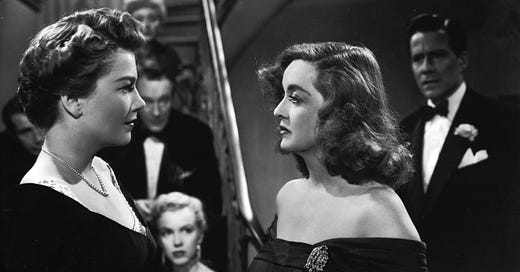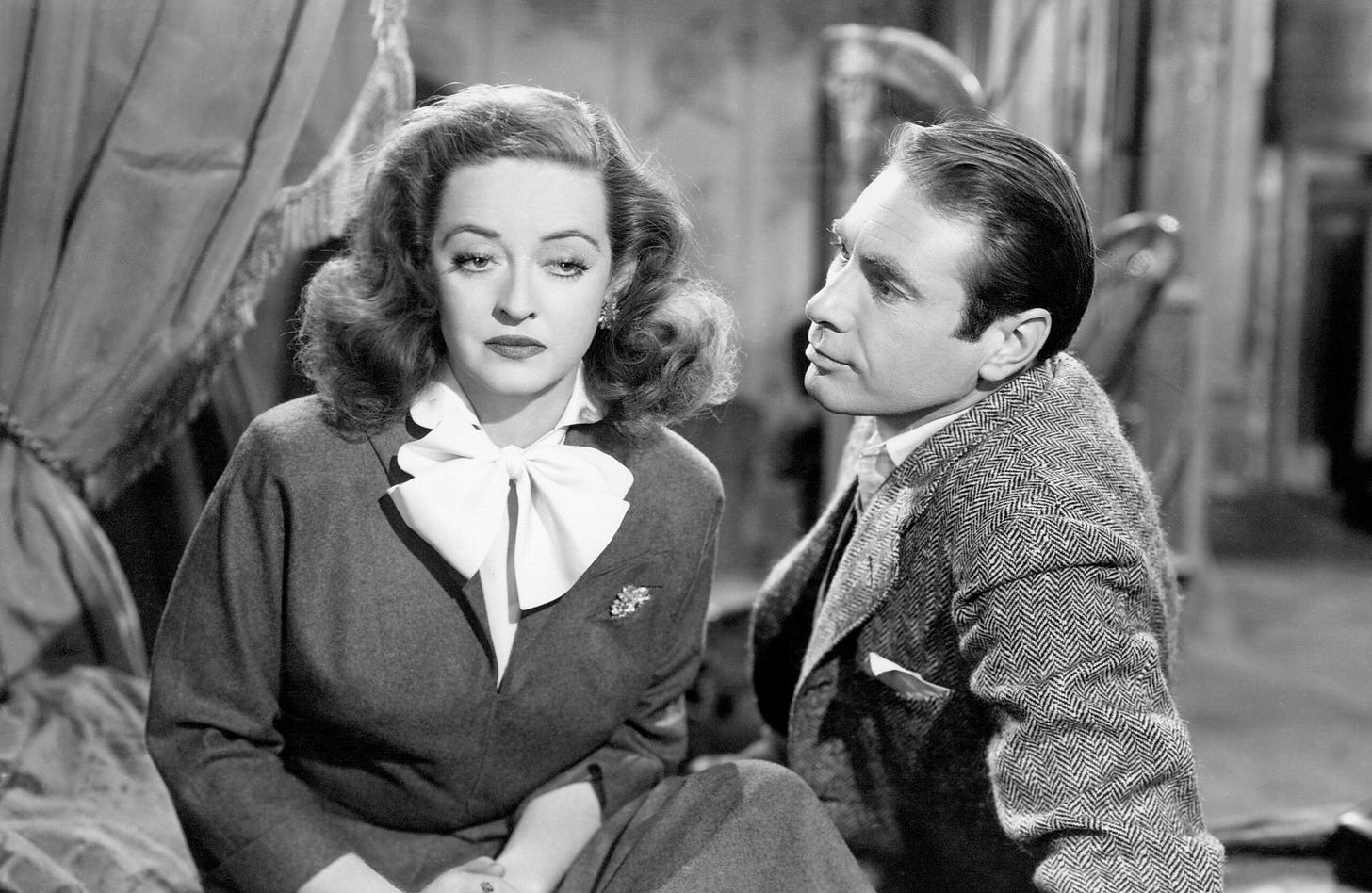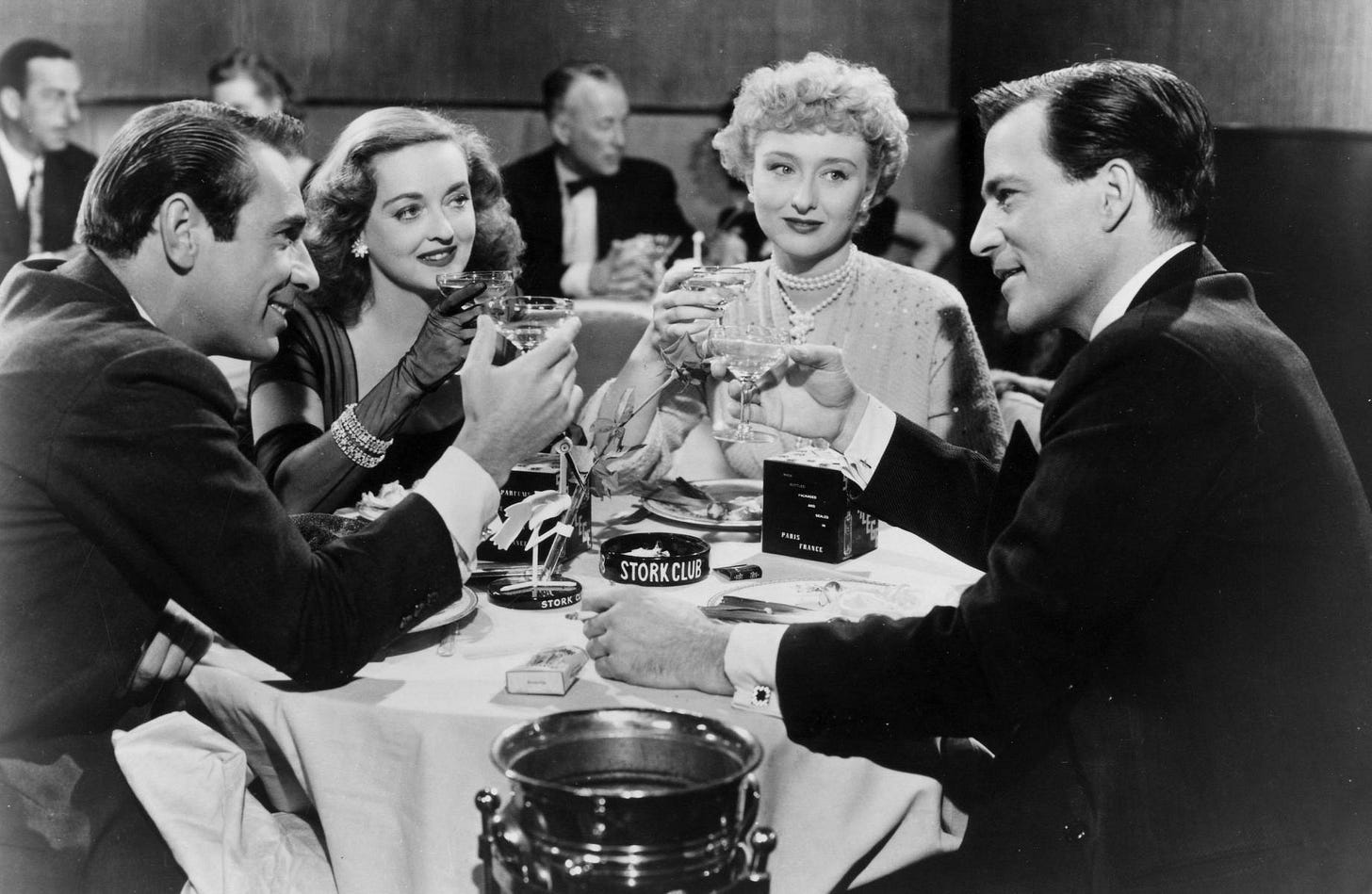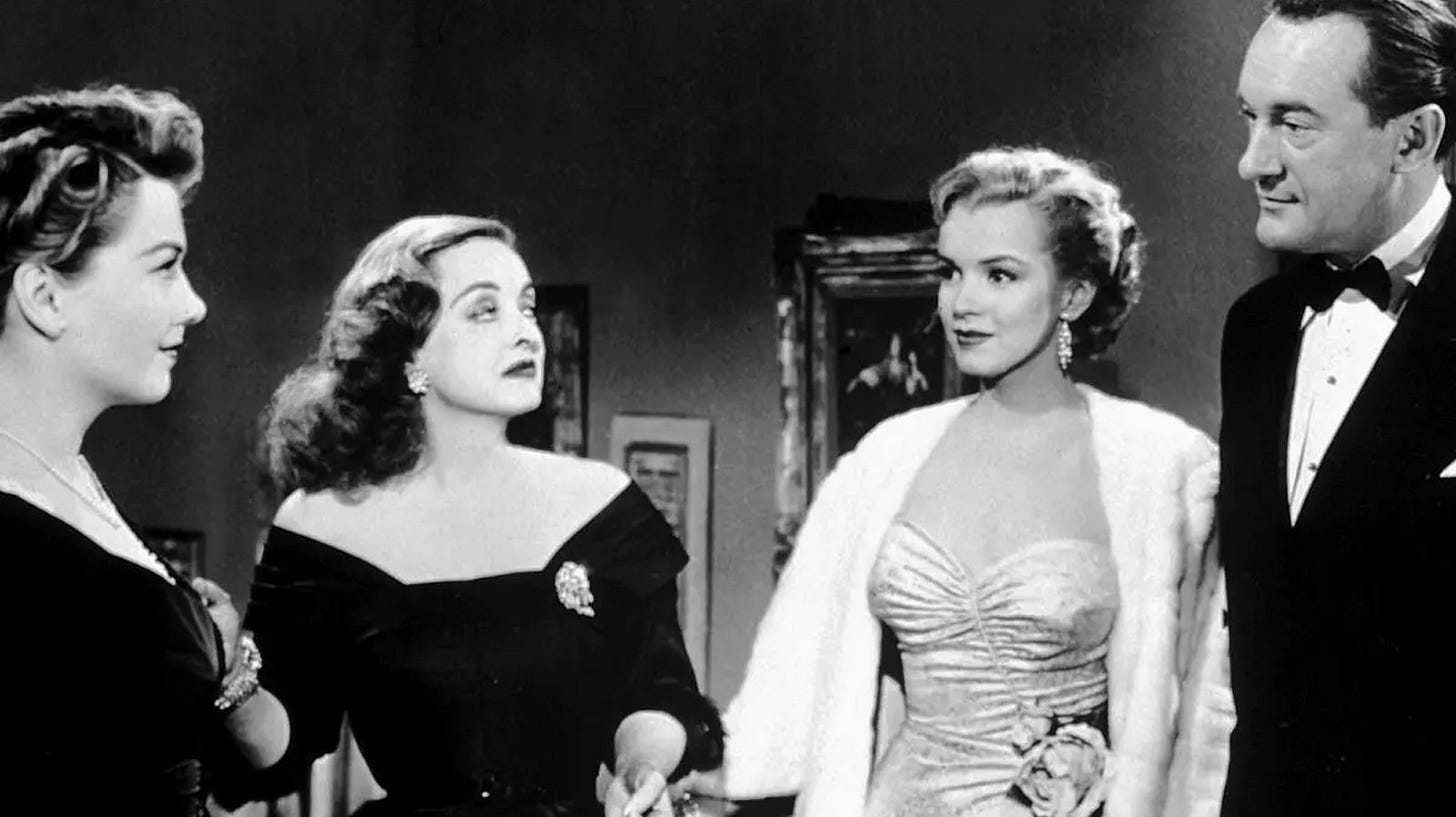In April of 1950, Bette Davis received a phone call that would change her life. On the other end of the line was Darryl Zanuck, the producer who had once venomously stated that she’d “never work in Hollywood again.” Now, he was offering her the role of a lifetime: Margo Channing in All About Eve.
The two hadn't spoken since 1941 when they fell out over changes Davis had tried to make in Hollywood after being temporarily appointed president of the Academy. Nine years later, as she sat in silence, listening to Zanuck pitch her, while trying to figure out his angle, she concluded that someone must have been playing a cruel joke. Deciding to play it coy, she deadpanned in her trademark saucy tone, “Anything you say, Darryl dear. If I like it, I shall do it.” It was only when Zanuck mentioned Claudette Colbert's need to drop out of the role due to a back injury that Davis realized it wasn't a prank after all. This single phone call would lead to what many consider the greatest performance of her career.
Margo Channing was a genuine tour de force character – a Broadway star struggling with typical demons attributed to aging, jealousy, and a scheming young understudy played by Anne Baxter. And for Davis, whose career was in decline after a string of box office bombs, All About Eve was the divine intervention she’d been grasping for.
After her first meeting with director and screenwriter Joseph L. Mankiewicz, she tore into the script before her chauffeur even left the Fox film lot. Her fascination grew with each page, and by the time the driver pulled up to her Laguna Beach home, Davis knew she had the best script in town in her hands.
Locking herself in her study, armed with plenty of scotch and cigarettes, she didn't come out again until she’d committed herself to every word and nuance of All About Eve. At forty-two, Davis was around Margo's age, and like her character, she was fighting to stay relevant in a misogynistic industry that prized youth over experience. She knew Margo as well as she knew herself.
“Mankiewicz is a genius,” Davis would later declare. “He resurrected me from the dead.” It was true. His whip-smart screenplay provided her with dialogue that would be immortalized in cinema history. But no line is more iconic than her infamous declaration at the beginning of her birthday party. “Fasten your seatbelts, it's going to be a bumpy night!” Despite warnings from other directors about working with Davis, Mankiewicz found her to be “syllable-perfect” and “the director's dream: the prepared actress.”
The filming of All About Eve itself was worthy of a juicy screenplay. Davis fell head-over-heels in love with her (married) co-star Gary Merrill, who played her younger director boyfriend (Merrill married Davis that year– incidentally the same day his divorce from his first wife Barbara Leeds was finalized.) “I was irresistibly drawn to her,” Merrill would later say. “Never in the history of motion pictures has an actress been so perfectly cast.”
The set was a histrionic blend of tension and talent, with Davis reportedly clashing with co-star Celeste Holm from day one. When Holm made the mistake of greeting Davis with a cheerful “Good morning,” Davis reportedly snapped back, “Oh shit, good manners.” The animosity would last years, with Holm later remembering, “Bette Davis was so rude, so constantly rude,” while Davis had her own take. “There was one bitch in the cast—Celeste Holm.” But Davis expertly brought that same crass intensity in her blunt portrayal of Margo.
The film's exploration of aging and ambition in show business was cathartic for Davis. Like Margo, she walked a fine tightrope, wondering where the industry would place her next. “People get the idea that actresses my age are dying to play younger women,” Davis told columnist Hedda Hopper. “The fact is, we die every time we play one.” But in Margo, Davis found a character who felt these fears with wit and vulnerability, transforming them into strength instead of fear.
All About Eve would receive fourteen Academy Award nominations, a new record for 1951. Though Davis lost the Best Actress Oscar to Judy Holliday for Born Yesterday, her performance has arguably had a greater lasting impact. The film wasn’t just a critical success, but a cultural touchstone with its scenes quoted and parodied for decades to come.
All About Eve’s fixation on the price of fame is as relevant today as it was in 1950. When Margo delivers her climactic monologue about a woman's career – “The things you drop on your way up the ladder, so you can move faster. You forget you'll need them again when you get back to being a woman” – still resonates with modern discussions about women's roles in entertainment and the career world in general.
Davis would later reflect that All About Eve was “the greatest role of my career.” It's hard to disagree. The film captures Davis at her most magnetic, alternating effortlessly between vulnerability and vitriol. Her Margo Channing is both larger than life and heartbreakingly human, a star who knows her light is fading but refuses to go down without a fight.
For most of the cast, All About Eve represented a peak they would never again reach. Only Marilyn Monroe, in her small but unforgettable role as struggling actress, Miss Casswell, would go on to greater heights. But for Davis, it marked both an ending and a beginning. The film made her immortal, preserving forever the moment when a great star, written off by Hollywood, proved she still had the presence to command the screen. All About Eve created something unique – a portrait of an artist defending her spotlight from the understudies who claimed to worship it.
Alfred Hitchcock once said, “Drama is life with the dull bits cut out,” a sentiment Margo Channing would surely embrace. And in All About Eve, Bette Davis gave us exactly that: life stripped to its raw, primal essence.







